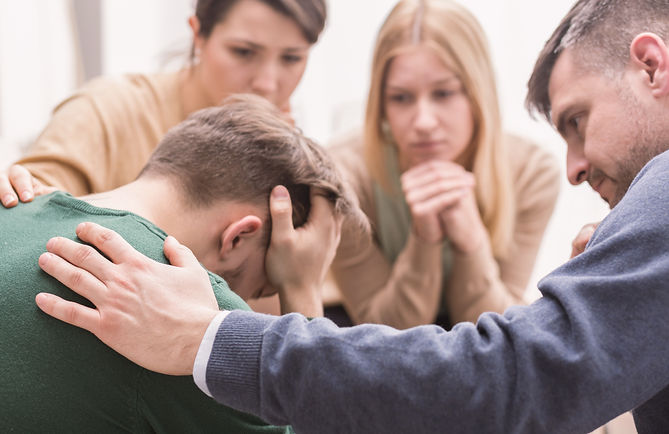Depression & Relationships

Depression and other mental illnesses can be difficult to manage and will take their toll on a number of aspects of your life including the relationships you have with people around you. Something which may be overlooked is the detrimental factors depression can impose on your friends and family, often due to a lack of education and understanding.
Although depression can put a lot of strain on relationships, there are a number of things you can do to prevent this and consider.
How relationships can help depression
When you’re experiencing symptoms of depression, those closest to you will often be the first to notice a change in your behaviour and mental well-being and therefore be your initial support network. Whether it’s your family, friends or partner, these are the people that will know you best and you should be able to open up to them regarding your emotions.
Although people may not fully understand how you’re feeling or why, speaking with them anyway may offer a number of benefits as it will allow you to voice your emotions and take a weight off your shoulders. They may also be able to provide their prospective allowing you to see things in a different light.
A huge benefit to being open with those around you is the fact they can offer support at any time, to where as therapy sessions are booked slots which you may only have once a week or month. Therefore, should you feel suicidal or notice a drastic change in how you’re feeling, you will be able to reach out to someone you are more comfortable around.
How depression can affect relationships
Although those closest to you may be the ones you confide with first, this may not always be so easy. When suffering with depression, accepting your symptoms and voicing them may make the issue far more real, in which case can be overwhelming for you to face. Because of this, you may find you start distancing yourself and masking your emotion. Doing this will likely only become more problematic in the future as the thoughts and feelings will manifest into something more difficult to manage and overcome.
Another factor which may affect a relationships with loved ones is, as mentioned above, distancing yourself. You may find that you don’t want to burden others with how you’re feeling and as if your emotions and thoughts are irrational and therefore may not be taken seriously. As a result you may become increasingly distant and consumed by your thoughts which will apply strain to relationships should you not communicate this.
At first, it may be hard for people around you to understand the severity of how you’re feeling and will require patience for both them and yourself to come to terms with different problems you may face and symptoms you may experience. Should these people fail to understand in the long run, seeking a medical professional would be far more beneficial oppose to no help at all.
How to improve relationships
There are several ways in which you can try and minimise the effects of depression on your relationships and although may not be easy, are a great first step into improving your mental health.
-
Communication
Communication is key. By opening up to people closest to you, it will allow them to have a better understanding of how you feel and accommodate towards this. They will be able to offer advice and support and see things from a different prospective.
-
Patience
This is highly important. Communicating and expressing how you feel is great, but you can't always expect someone who hasn't experienced it to fully understand straight away. It's important to not take this personally if something to you is a big deal but they don't see it that way. Over time they will get a better understanding on how it effects you and why you feel the way you do.
-
Make time
As much as you may want to be alone, sometimes with depression its good to do the opposite of what your mind says. Having time alone can be beneficial, however all in moderation. Start and devote some time with your loved ones and remain as socially active as you can. It will make you feel more fulfilled in the long run.
-
Don't be afraid of help
Similar to communicating, don't be afraid of help offered by loved ones. Perhaps they have recommendations for therapy or want to try a coping mechanism with you, it's important to appreciate this and be open to try new things.
